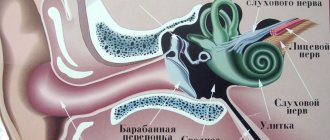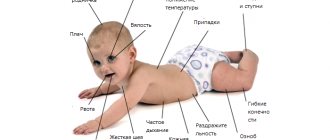Hospitalism is a complex of psychosomatic disorders that develop as a result of a patient’s long stay in a hospital, away from family and friends. The unfavorable conditions of the hospital environment, the lack of emotional and social contacts and simple human communication, as well as complete isolation from society have a depressing effect on the psychophysical state of the patient. A person's long stay in a hospital without the care and attention of loved ones leads to mental and motor development retardation in children, as well as psychophysical degradation in adults.
This concept was introduced in 1945 by American psychoanalyst R. Spitz. He studied how pathology developed in children who were in the hospital for a long time without their mother. At the same time, the patients were carefully looked after, well fed and properly treated. The children gradually showed signs of depression, lethargy, and passivity. Their facial expressions disappeared and their eye coordination was impaired. Patients staying in the hospital for more than a year, without maternal support, acquired signs of deep psychophysical retardation. Spitz concluded: the consequences of hospitalism are long-term and irreversible.
Modern psychologists also note that hospitalism more often occurs in boarding schools, nurseries and children's hospitals. At the same time, they focus on a very important aspect - the influence of the mother on the development of the child. It has been proven that there is a direct relationship between the full development of the baby and parental love.
Hospitalism occurs most often in children, schoolchildren and adolescents. Only isolated cases of the disease have been reported among young, mature and elderly people. Hospitalism has a second name - separation from home syndrome or orphan syndrome. Children are most susceptible to its development:
- Living in shelters, orphanages, closed boarding schools,
- Deprived of proper attention, maternal affection and care,
- Born into dysfunctional families,
- Those suffering from serious illnesses
- Having congenital and acquired disorders of the nervous system.
Sick children lose weight sharply, become weak and lethargic, indifferent to everything. They are emaciated and pale, sleep and eat poorly, and look unhappy. Their muscle tone decreases and their response to the voice disappears. Such patients begin to walk and talk late, show inappropriate emotions, and their actions become obsessive. In severe cases, the overall development of the child slows down. He has difficulty mastering basic skills and cannot take care of himself or control his body. In children, not only communication, but also intellectual abilities, fine motor skills, and the ability to express emotions are impaired. They lag behind their peers in height and weight and experience difficulties in mastering certain motor acts. Disadaptation to the environment and society, loss of interest in life, low resistance to infections are long-term and often irreversible phenomena of hospitalism. If the child is returned to the mother within three months, the symptoms of the disorder will gradually disappear and psychophysical changes will be restored. Prolonged separation leads to the consolidation of clinical manifestations and the rapid developmental lag of the child.
In adults receiving long-term treatment in a hospital, a “chronic illness” syndrome develops. Patients cannot imagine themselves in a different environment and perceive the hospital regime as the norm of life. They shirk their functional responsibilities at work and do not take part in social life. Worldview is distorted especially clearly in older people. Patients strive by any means to return to the hospital walls as soon as possible. They are ready to do anything to stay there longer. Such mental disorders worsen the prognosis of the somatic illness that caused the patient’s initial hospitalization. In the absence of treatment, psychological oppression reaches a maximum, which often ends in the death of patients. Survivors suffer from severe mental illness and antisocial tendencies. Patients who are forced to constantly stay in a mental hospital become disabled precisely from the destructive influence of this syndrome, and not from the mental illness itself.
Clinical signs of pathology depend on the length of stay of the patient in the health care facility:
- The duration of stay in the department is 5-10 months - isolated symptoms of hospitalism,
- 10 - 15 months - fully formed disease,
- More than 15 months - severe course of the disease and maximum severity of symptoms.
The longer a patient stays in the hospital, the less chance he has of saving himself and not falling out of society.
Diagnosis of hospitalism is carried out by specialists in the field of psychology, psychiatry, and neurology. Therapeutic measures include psychological correction, social rehabilitation, work with teachers and defectologists, and taking medications. Hospitalization is a severe pathology leading to irreversible processes.
Causes
Hospitalism develops in individuals who lack sensory, emotional and intellectual interaction with their mother or other person to whom they have formed an attachment. The trigger for pathology is the lack of parental warmth, love and care. Separation from the mother becomes a terrible tragedy for the child, leaving an imprint on the rest of his life.
Hospitalism is the lot of not only orphans, but also children from intact families, where the problem of loneliness becomes urgent from an early age. Children suffer greatly from the lack of trusting, tactile and warm emotional contacts.
The phenomenon of hospitalism is a set of psychosomatic disorders that occur in children and adults for various reasons.
Reasons for the development of pediatric hospitalism:
- The absence of a loved one nearby. Children forced to receive treatment in a hospital setting for a long time or live in a shelter, boarding school, or orphanage suffer from a lack of communication with family and friends. They don't feel loved, cared for or understood.
- Mother's coldness or indifference. Typically, women who are not interested in their child and do not love him suffer from alcoholism, drug addiction, and mental illness. Maternal detachment may be the result of an unwanted pregnancy or individual personality traits, such as withdrawal. Such women are completely absorbed by work. Many modern women are careerists by nature. They put the material well-being of the family first.
In boarding schools, orphanages and similar institutions, hospitalism develops as a result of an impoverished psychological climate, lack of attention and emotions on the part of staff. Sick children experience emotional insufficiency and become passive. They do not develop basic skills and abilities.
Children with poor health and insufficient adaptive capabilities are at risk of developing hospitalism. Risk factors include chronic diseases requiring long-term hospital treatment.
Elderly and lonely people are especially in dire need of communication and attention. When a person is left alone with his problems, his psyche cannot stand it. In such cases, you cannot do without the support of loved ones. Despite proper care in hospitals and nursing homes, they acutely feel the lack of love and attention. In adults, the cause of hospital syndrome is also a long stay in places of detention - various types of correctional institutions.
The pathogenesis of hospitalism is based on complete or partial deprivation. This phenomenon means dissatisfaction of the need for communication, warmth, and affection. When a person is completely isolated and deprived of communication, a severe form of hospitalism develops - Mowgli syndrome. Partial deprivation or separation is a long-term stay of a child in a closed institution without a mother. It leads to a delay in psycho-emotional development - the late formation of a complex of revival and interest in surrounding objects.
Spits Research
The specialist who first described the problem of hospitalism was the psychoanalyst Spits. He examined the condition of children left without maternal affection and care and placed in a hospital setting. At the same time, the small patients studied received the necessary basic level of care - they were fed, received the necessary hygienic and medical care.
As a result of Spits's research, the following conclusions were drawn:
- after about 3 months, the physical condition of the children deteriorated - their immunity became weaker, the number of deaths increased (in children with disabilities);
- a little later, some changes in the psyche began to appear - apathy, inhibition, passivity appeared;
- starting from the 2nd year of life in such conditions, deep psychophysical retardation began to manifest itself from different sides - speech changed for the worse, walking skills were lost, some children could not stand or sit.
As a result, Dr. Spits came to the conclusion that for the normal development of a child, it is of enormous importance whether he received maternal affection, care, love, and communicated with his mother.
The psychoanalyst identified two types of syndrome:
- hospitalism associated with the complete absence of the mother in the child’s life (from birth or early infancy);
- hospitalism caused by developed anaclitic depression, which occurs if the child was forced to be isolated from the mother from whom she received care and warmth (for example, as a result of her death).
Modern researchers studying the problem of hospitalism agree that any deprivation (reduced communication, absence of a mother in the child’s life) leads to the development of hospitalism, including when the child is physically close to the mother, but does not receive any attention to his person and she's not really interested in him.
Symptoms
Infants in the first six months of life develop correctly and in a timely manner, if they do not have congenital pathologies. Starting from the age of six months, the formation slows down, and the phenomenon of extinction occurs. Since hospitalism affects physical and personal development, children experience manifestations of psychomotor disorders. Patients have psychophysical underdevelopment, which begins in infancy and progresses as the child grows older.
Symptoms of hospital syndrome in children:
- Late formation of a complex reaction of revival - lack of smiling, screaming, humming, babbling when familiar faces appear, inability to fix the gaze on an object, tearfulness;
- Impaired motor development - lack of sucking skills, underdeveloped reflexes, late holding the head and turning the body over, incoordination of movements, unstable and uncertain actions, inability to take a toy and transfer it from hand to hand;
- Autonomic disorders - a rise in body temperature for no obvious reason, weakness, apathy, decreased muscle tone, drowsiness or insomnia, refusal to eat, short stature and low weight, underdevelopment of the musculoskeletal system, urinary and fecal incontinence, decreased overall body resistance to infections, chronic course of existing diseases;
- Delayed speech development and progressive speech dysfunction – unintelligibility of speech, loss of intonation;
- Emotional and personal disorders - crying and aggression in response to adults, indifference to everything that happens around, underdevelopment of higher emotions, lack of interest in communication, apathy, isolation or emotional irascibility with crying, screaming, fighting, disinhibition, antisocial behavior, lack of compassion, pity, shame, guilt, obedience, silence, indifference;
- The appearance of stereotypical movements and obsessive actions - swaying the body, shaking the head, thumb sucking, chaotic movements of the arms and legs;
- Intellectual disorders - inability to master basic skills, the predominance of inhibition processes over excitation, decreased adaptation in society, lack of role-playing games, severe mental retardation;
- Changes in the central nervous system - neurasthenia, psychosis, signs reminiscent of autism, fear of toys, touches and looks, lack of self, uncertainty, stiffness of movements and slowness, constant anxiety, frequent conflicts, signs of depression, mood swings.
Clinical signs of pathology in adults:
- Lack of interest in professional activities and a desire to idle,
- Apathy, passivity, indifference,
- Fear of being discharged from the hospital,
- Reluctance to communicate with people, isolation,
- Constant conflicts with others,
- Meaningless and monotonous, often repeated, obsessive movements,
- Emotional impoverishment.
Elderly individuals with hospitalization suffer from progressive brain dysfunction. They experience mental disorders, manifested by memory lapses; thinking becomes inadequate - patients perceive real events distorted. General signs of pathology include: lethargy, apathy, weakness, cachexia, stiffness of movement, muscle rigidity, lack of initiative, carelessness. Patients lack plans and hopes, they become inhibited, lack of initiative, mannered, exhausted, and inactive. Most patients have a negative attitude towards returning to work after discharge. They don't read, don't watch TV, and rarely leave the house. Their gaze becomes frozen and distant, their limbs twitch slightly. Over time, signs of dysfunction of the vestibular apparatus appear, helplessness in matters of self-care and behavior in everyday life increases, personal regression and emotional emptiness develop.
Symptoms
One of the first conditions to note is gradual weight loss, which is independent of the original illness and often occurs after recovery. Subsequent atrophy has an inverse relationship with age, being especially noticeable before six months.
The onset of weight loss, independent of the disease, is a sign of immediate discharge from the hospital. If a person passes a certain point, no change in environment or food will save him.
As the condition develops, progressive anemia appears, and children often die without having an organic disease.
Pneumonia, diarrhea, or other acute conditions that the body cannot completely overcome are not uncommon. They can be saved by leaving the hospital in a timely manner, despite the apparent contradiction.
Diagnosis and treatment
Diagnosis of hospitalism includes the following clinical methods:
- Anamnesis collection - interviewing the patient’s parents and close relatives, staff and other persons who regularly contact him;
- General examination of the patient by a pediatric neurologist, psychiatrist, clinical psychologist;
- Neurological examination - determination of muscle strength and tone, response to external stimuli, complex targeted movements, identification of existing diseases of the nervous system;
- A psychological examination makes it possible to assess the patient’s psychomotor development, ability to communicate and respond adequately, to care for oneself independently, as well as to detect lags in the mental and emotional sphere;
- Dynamic observation of the patient is necessary to make a final diagnosis.
After receiving the results of diagnostic measures, specialists prescribe adequate and most effective treatment. Doctors pay special attention to young children, since the mortality rate in this category of patients is very high.
Treatment of hospital syndrome is a complex, multi-stage and lengthy process.
Treatment regimen for sick children with hospitalism:
- Increased communication between the child and relatives and peers.
- Return of a small patient to the family.
- Organization of a 24-hour hospital stay between the child and the mother.
- Equipping closed institutions with meeting rooms.
- Pedagogical correction is the development of a child’s communicative qualities by including him in a children’s team, as well as ensuring close interaction between mother and baby.
- The purpose of psychological support is the development of cognitive functions in the child. To do this, exercises are used in the form of games that have a training effect. Psychological assistance allows you to create a positive emotional background, eliminate fear, anxiety, and worry.
- Psychotherapists use art therapy, music and body therapy, relaxation sessions, and training to develop communication and socialization skills for patients. Group, individual and family psychotherapy allows you to restore and maintain a healthy psychological climate in the family and children's groups.
- Medication is used only in severe cases when all other treatment methods do not produce positive results. Patients are prescribed drugs that correct emotional instability, improve metabolic processes in the central nervous system and stimulate the development of cognitive functions.
- Treatment of existing somatic and infectious diseases, restorative therapy.
To cure the syndrome in adults, it is necessary to eliminate the underlying disease that caused their hospitalization in a health care facility. Chronic illnesses are best treated on an outpatient basis. Rehabilitation activities are carried out by a specialist psychotherapist or psychiatrist.
Forecast
Modern people had a myth about “rugged individualism,” which may have been an indirect cause of hospitalism. In those days, parenting "experts" advised parents to never take their children out of kindergarten early, never let them sleep in the same room, or they would grow up weak, stuttering, dependent.
Today, this attitude is influencing the current mental health crisis. 20% of all adults should be hospitalized and receive medication for stress-related mood disorders. People need human contact
Hospitalism syndrome in the new millennium is also associated with hospital stays, but more often with the complexity of social problems, family relationships, lack of touch, communication and mother's love.
Prognosis and prevention
The prognosis of the pathology is considered favorable if the patient does not have severe somatic diseases and adequate treatment was started in a timely manner.
The following factors influence the outcome of hospitalization:
- Patient's age
- Frequency of visits between the child and his mother or other close person,
- The severity of intellectual, mental and behavioral disorders,
- Presence of concomitant disorders
- Treatment effectiveness.
Late diagnosis and inadequate treatment lead to disability and death of patients. Only the joint work of doctors, psychologists and the patient’s relatives will completely eliminate the disease.
Measures to prevent the development of hospitalism in children:
- Living in a prosperous family,
- Warm relationship with mother
- Admission of a child to a health care facility only with a person close to him/her,
- Organization of the daily routine,
- Regular communication with peers,
- Interesting activities and games in a group.
Hospitalism is a mental illness that leaves a negative imprint on all areas of personal development: intelligence, emotional state, psychophysical qualities.
Conditions necessary for successful infant development
The study of hospitalism and the strange tendency exhibited by infants leads to the formation of the conditions necessary for the successful raising of children.
A healthy baby, when awake, is in constant motion. Rocking in the arms, caresses, which the baby receives from a sensible mother or nurse, are clearly beneficial. Undoubtedly, nature never intended for anyone to lie quietly in a crib from morning to evening.
If the baby requires something more, then it is air - a lot of fresh, clean air. Since the person is small, it is believed that only a small air space is required. Clothing, hygiene, food may be ideal, but if confined to a small, poorly ventilated room, it will not develop well.
Hospitalization in newborns
Even newborn babies can suffer from this syndrome. A child abandoned by his mother has the following symptoms:
- poor appetite, rapid weight loss;
- inactivity, the child seems to be constantly sleepy;
Poor appetite in infants
- low muscle tone, sluggish movements;
- absence or weak reaction to stimuli.
Children with hospitalism have developmental delays; later they begin to hold their heads, sit, walk, and talk. It is noticeable that they have problems with coordination, uncertain and imprecise movements.











